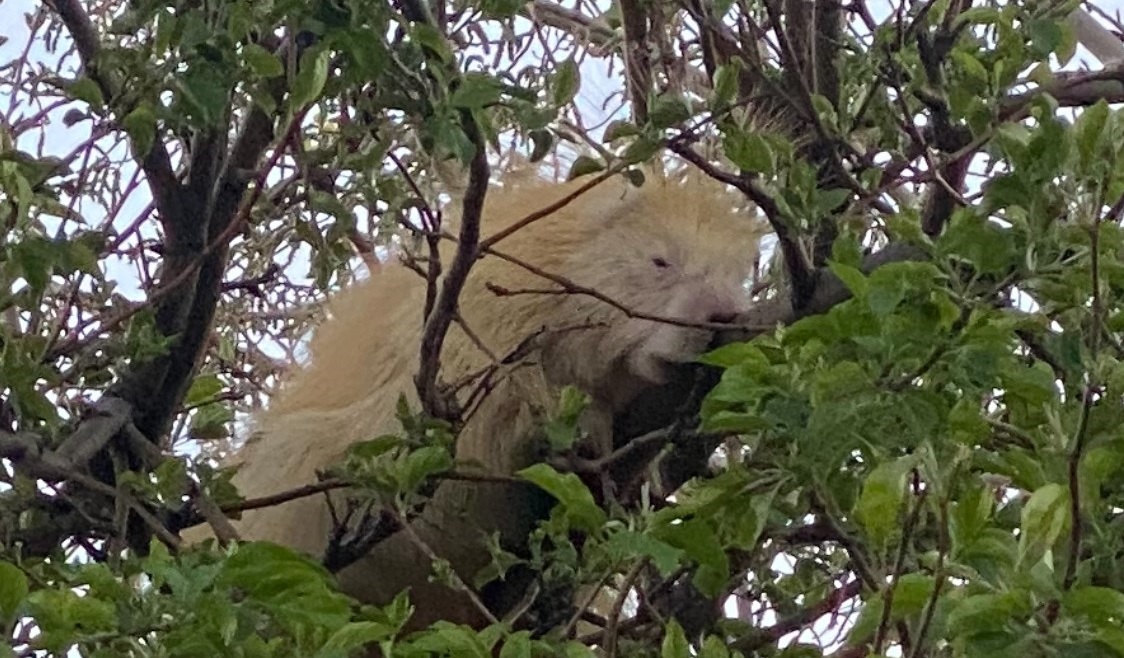“A rare find.” That’s how the Alberta Institute for Wildlife Conservation describes the discovery of an albino porcupine outside a home in Medicine Hat.

Chelisa and Darren Bender, who live in the S.E. Alberta city, spotted the elusive animal in their backyard on Wednesday, May 8, 2024.
Video and photos they provided to Global News shows the animal waddling across their lawn then climbing a tree.
“We have few resident ones that like to climb in our apple tree and snack, but this is the very first time we have ever seen an albino one,” says Darren. “My wife spotted it and it hung out in the tree for a few hours before returning to the coulee behind our house.”
A spokesperson for the A.I.W.C., Scottie Potter, says “mammals like porcupines are highly unlikely to be born albino, let alone survive to adulthood.”
Potter says “albinism is caused by a recessive gene that prevents the production of melanin in hair, skin, eyes, and other tissues. Melanin is important because it protects the body from UV rays, meaning albino animals have high rates of skin cancer and even blindness due to sun damage.”

Get breaking National news
“Albino animals also stick out in their environment, making them more obvious to predators, which makes life as a wild albino animal an extra challenge,” Potter says.





Comments